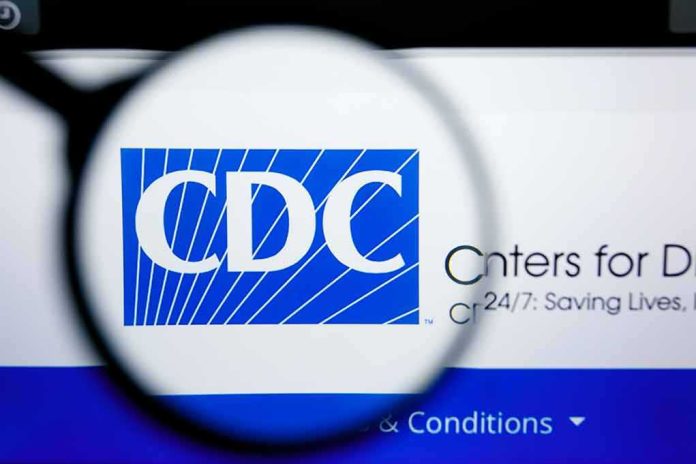
Robert F. Kennedy Jr. completely overhauls the CDC’s vaccine advisory panel, removing all 17 members to eliminate pharmaceutical industry conflicts of interest and investigate the safety of America’s childhood vaccination schedule.
Key Takeaways
- HHS Secretary Robert F. Kennedy Jr. has replaced all 17 members of the CDC’s Advisory Committee on Immunization Practices (ACIP) with new appointees free from pharmaceutical industry ties.
- The restructured committee will review the cumulative effects of childhood vaccines, examining whether American children receive too many vaccines compared to other developed nations.
- Major medical organizations including the American Academy of Pediatrics have withdrawn from ACIP hearings, claiming the process has been politicized at the expense of children’s health.
- Two new ACIP work groups will specifically focus on reviewing the childhood/adolescent vaccine schedules and vaccines that have been approved for seven or more years.
- The committee will also consider religious objections to vaccines developed using fetal cell lines, particularly the MMR vaccine.
Kennedy’s Vaccine Panel Overhaul Targets Pharmaceutical Influence
In a sweeping move that signals a major shift in America’s vaccine policy approach, Health and Human Services Secretary Robert F. Kennedy Jr. has dismantled the previous CDC vaccine advisory panel, citing conflicts of interest with pharmaceutical companies. The restructured Advisory Committee on Immunization Practices (ACIP) held its first meeting this week, launching what Kennedy has described as a thorough review of childhood immunization practices in the United States. The panel, now led by epidemiologist Dr. Martin Kulldorff, has been tasked with examining the cumulative effects of the current vaccine schedule on children’s health.
“Secretary Kennedy has given this committee a clear mandate to use evidence-based medicine. We’re making vaccine recommendations and that is what we will do. Vaccines are not all good or bad,” said Martin Kulldorff, the new panel chair.
Medical Establishment Pushback Against New Approach
The restructuring has sparked significant controversy within the medical community. The American Academy of Pediatrics (AAP), a leading voice in children’s health, announced it would withdraw from ACIP hearings altogether. The organization’s dramatic departure from the process represents a significant rift between Kennedy’s administration and established medical groups who have long supported the current vaccination schedule. Insurance companies, meanwhile, are facing pressure to continue covering vaccines regardless of potential changes to official recommendations.
“We won’t lend our name or our expertise to a system that is being politicized at the expense of children’s health,” said Susan Kressly, AAP President.
Critics have questioned both the scientific credentials of some new committee members and the removal of established vaccine safety information from the ACIP website prior to the meeting. Of particular concern was a presentation on thimerosal by Lyn Redwood, an anti-vaccine activist, despite extensive previous studies showing the compound’s safety. Adding to the controversy, a document summarizing thimerosal safety research was reportedly removed from the ACIP website before the committee convened.
Specific Vaccines Under Review
The new ACIP leadership has already identified specific vaccines and practices they plan to scrutinize. These include questioning whether the Hepatitis B vaccine is necessary for all newborns, especially those born to mothers who are not Hepatitis B positive. The committee will also examine the timing of the MMR (measles, mumps, rubella) vaccine and consider religious exemptions for vaccines developed using fetal cell lines. Two new work groups have been created to focus on childhood vaccine schedules and vaccines approved seven or more years ago.
“The number of vaccines that our children and adolescents receive today exceeds what children in most other developed nations receive, and what most of us in this room received when we were children,” said Martin Kulldorff, panel chair.
Despite the controversy surrounding the restructuring, the committee did make one substantive recommendation during its first meeting. Members voted to recommend Merck’s RSV monoclonal antibody, Enflonsia, for infants 8 months or younger whose mothers did not receive a preventive RSV vaccine during pregnancy. The treatment was also added to the CDC’s Vaccines for Children program, which provides immunizations to eligible children at no cost.
Broader Implications for Public Health Policy
The overhaul of ACIP represents a significant shift in America’s approach to vaccine policy and highlights the Trump administration’s skepticism toward certain public health establishment practices. While Kennedy has been characterized as anti-vaccine by critics, supporters view the restructuring as necessary to restore public trust in vaccination programs by ensuring independence from pharmaceutical influence. The changes could potentially lead to a more selective approach to childhood vaccinations, moving away from the standardized schedule that has been in place for decades.
“People should understand this is a truly spectacular accomplishment and will have enormous impact on public health,” said Dr. Cody Meissner, referring to the RSV antibody recommendation that was approved during the meeting.
The debate surrounding Kennedy’s vaccine panel restructuring underscores deeper questions about scientific authority, regulatory independence, and the proper balance between government oversight and pharmaceutical innovation. With potential changes to vaccination recommendations that could affect millions of American children, the outcome of this initiative will likely shape public health policy for years to come.









